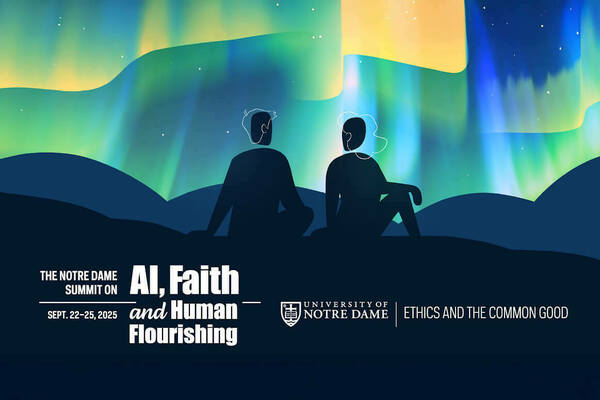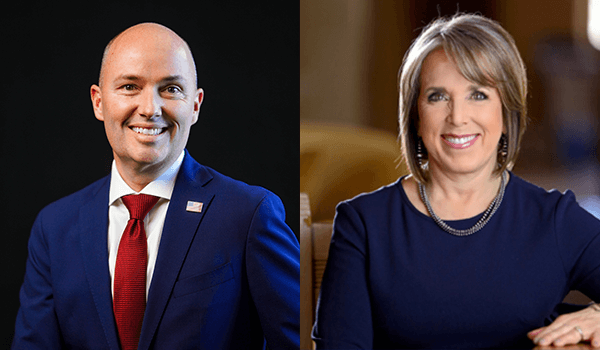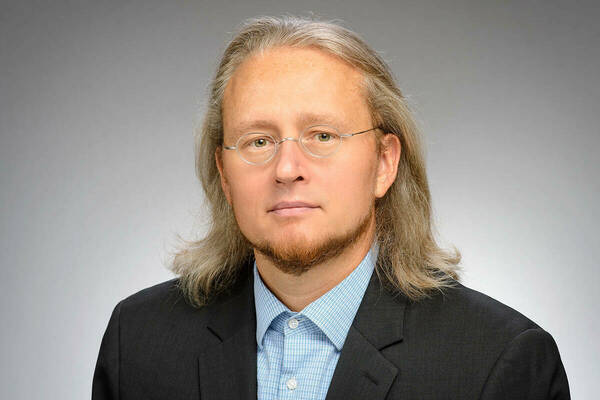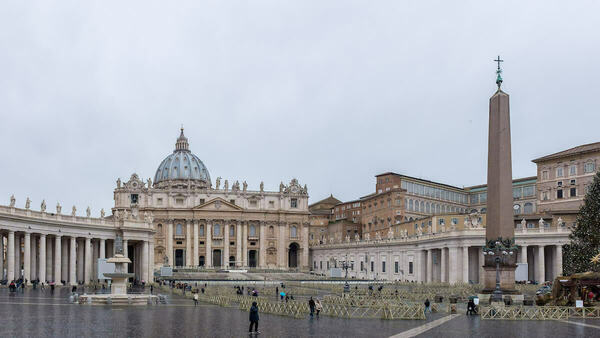Rapid plant evolution may make coastal regions more susceptible to flooding and sea level rise, study shows
Evolution has occurred more rapidly than previously thought in the Chesapeake Bay wetlands, which may decrease the chance that coastal marshes can withstand future sea level rise, researchers at the University of Notre Dame and collaborators demonstrated in a recent publication in Science.
Jason McLachlan, an associate professor in the Department of Biological Sciences, evaluated the role evolution plays in ecosystems in the Chesapeake Bay by studying a type of grass-like plant, Schoenoplectus americanus, also called chairmaker’s bulrush. The research team used a combination of historical seeds found in core sediment samples, modern plants, and computational models to demonstrate that “resurrected” plants were allocating more resources in their roots below ground, allowing them to store carbon more quickly than modern plants.
“We think this surprising reduction in below-ground growth might be a response to increased pollution in Chesapeake Bay,” McLachlan said. “Decades of pollution have resulted in higher levels of nitrogen and phosphorus in the waters, and since these are plant nutrients, evolution might now favor plants that ‘invest’ less in expensive roots.”
The seeds from the historical plants had remained underground on the property of the Smithsonian Environmental Research Center on the bay, dormant since the mid-1900s. McLachlan and other researchers collected them and allowed them to germinate and grow. Known as resurrection ecology, this type of research provides direct evidence that can support assumptions about evolutionary change.
Computational models had previously established the threat of sea level rise to coastal wetlands, and have incorporated scientists’ understanding of how flooding affects plant growth and how plant growth affects stability. While modern plants and samples from the mid-1900s grew similarly above ground, the modern plants invested less resources into rooting deeper below ground. This created less biomass below ground and could reduce the capacity of wetlands to withstand flooding.
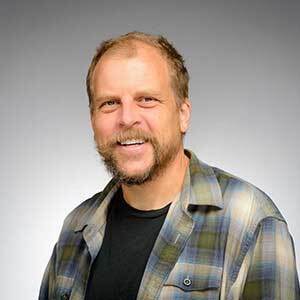
McLachlan and collaborators showed, through computational models, that the modern plants store carbon in soils 15 percent slower than the plants did in the mid-1900s.
McLachlan was astounded by the speed with which evolutionary change occurred in Schoenoplectus americanus.
“The research shows the role evolution plays as ecosystems are increasingly stressed by the impacts of human society,” he said.
First author Megan Vahsen, a doctoral student at Notre Dame, had discovered the importance of below-ground plant traits as early as 2017 as a first-year graduate student at Notre Dame. Though the researchers cannot specifically say that plants are investing relatively more of their energy above ground and less below ground because of pollution, she believes the combination of techniques used in the current research provides novel predictions about the impact of evolution on ecosystems. She expects the study will motivate researchers to study the causes that drive evolutionary change.
“For reasons of inconvenience, science has often ignored what happens below ground,” she said, noting that she and undergraduates at Notre Dame spent about 500 hours washing and sorting plant roots. “But we have learned so much in this study; there are so many secrets happening below ground.”
McLachlan said the research further demonstrates the role evolution plays as ecosystems are increasingly stressed by the impacts of human society.
“Evolutionary change over almost a century played a destabilizing role for coastal ecosystems. Other species in other ecosystems might have responded differently to human environmental impact, perhaps providing more resilience to ecosystems, or perhaps having no impact at all,” he said. “Now that we've shown that evolutionary change can be fast enough and large enough to affect ecosystem resilience, we hope other researchers will consider this component of biological response to global environmental change.”
Other collaborators in this research include Michael Blum and Scott Emrich of the University of Tennessee, Jim Holmquist and Patrick Megonigal of the Smithsonian Environmental Research Center, Brady Stiller of the University of Notre Dame and Kathe Todd-Brown of the University of Florida, Gainesville. The study was funded by the National Science Foundation and the United States Coastal Research Program.
Contact: Jessica Sieff, assistant director of media relations, 574-631-3933, jsieff@nd.edu
Latest ND NewsWire
- Notre Dame to host summit on AI, faith and human flourishing, introducing new DELTA frameworkThe Institute for Ethics and the Common Good and the Notre Dame Ethics Initiative will host the Notre Dame Summit on AI, Faith and Human Flourishing on the University’s campus from Monday, Sept. 22 through Thursday, Sept. 25. This event will draw together a dynamic, ecumenical group of educators, faith leaders, technologists, journalists, policymakers and young people who believe in the enduring relevance of Christian ethical thought in a world of powerful AI.
- Notre Dame Democracy Initiative hosts bipartisan conversation with Western state governorsTwo Western state governors known to work across the aisle on policy issues such as water, housing and energy will visit the University of Notre Dame for a fireside chat about how Western state pragmatism can serve as a model for the country to overcome polarization.
- In new research, Roy Scranton explores climate change and the limits of human progressIn his most recent book, “Impasse: Climate Change and the Limits of Progress,” Scranton, an associate professor of English, defines the impasse he sees as “not only political and institutional, but cognitive, existential and narrative” and asserts that the only path forward is through embracing what he terms ethical pessimism. “A lot of people confuse pessimism with nihilism, apathy and despair,” Scranton said. “But pessimism is actually about recognizing our limits, letting go of unrealistic goals, finding solidarity in the fact of human suffering and doing what you can now, not in some utopian future.
- Notre Dame MBA launches deferred admission programThe Notre Dame MBA Deferred Admission Program allows candidates with little or no work experience, including college seniors, to secure admission before reaching the recommended three years of work experience to enroll.
- ‘Prebunking’ false election claims may boost trust in electionsIn recent years, democracies worldwide have seen a growing erosion of trust in election outcomes and institutions, driven in part by fears of widespread fraud. New Notre Dame research finds that “prebunking” — providing accurate information before false claims spread — boosts trust in elections more effectively than traditional fact-checking.
- ND experts on the canonization of Carlo AcutisAs the Church awaits the ceremony in St. Peter’s Square, where Pope Leo XIV will formally declare Acutis a saint, University of Notre Dame experts Kathleen Sprows Cummings, Brett Robinson and Timothy O’Malley reflect on his life and his path to sainthood.








